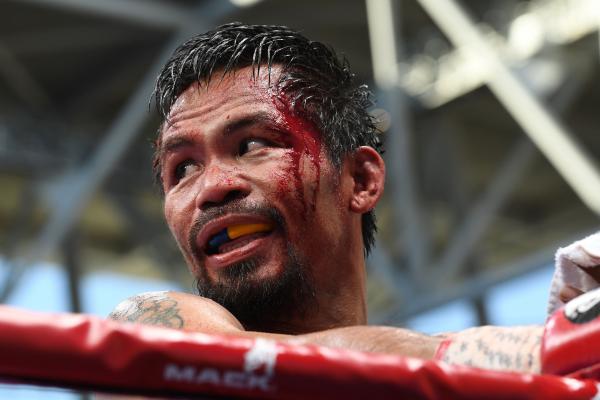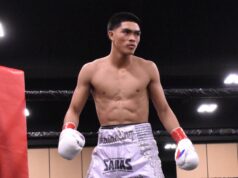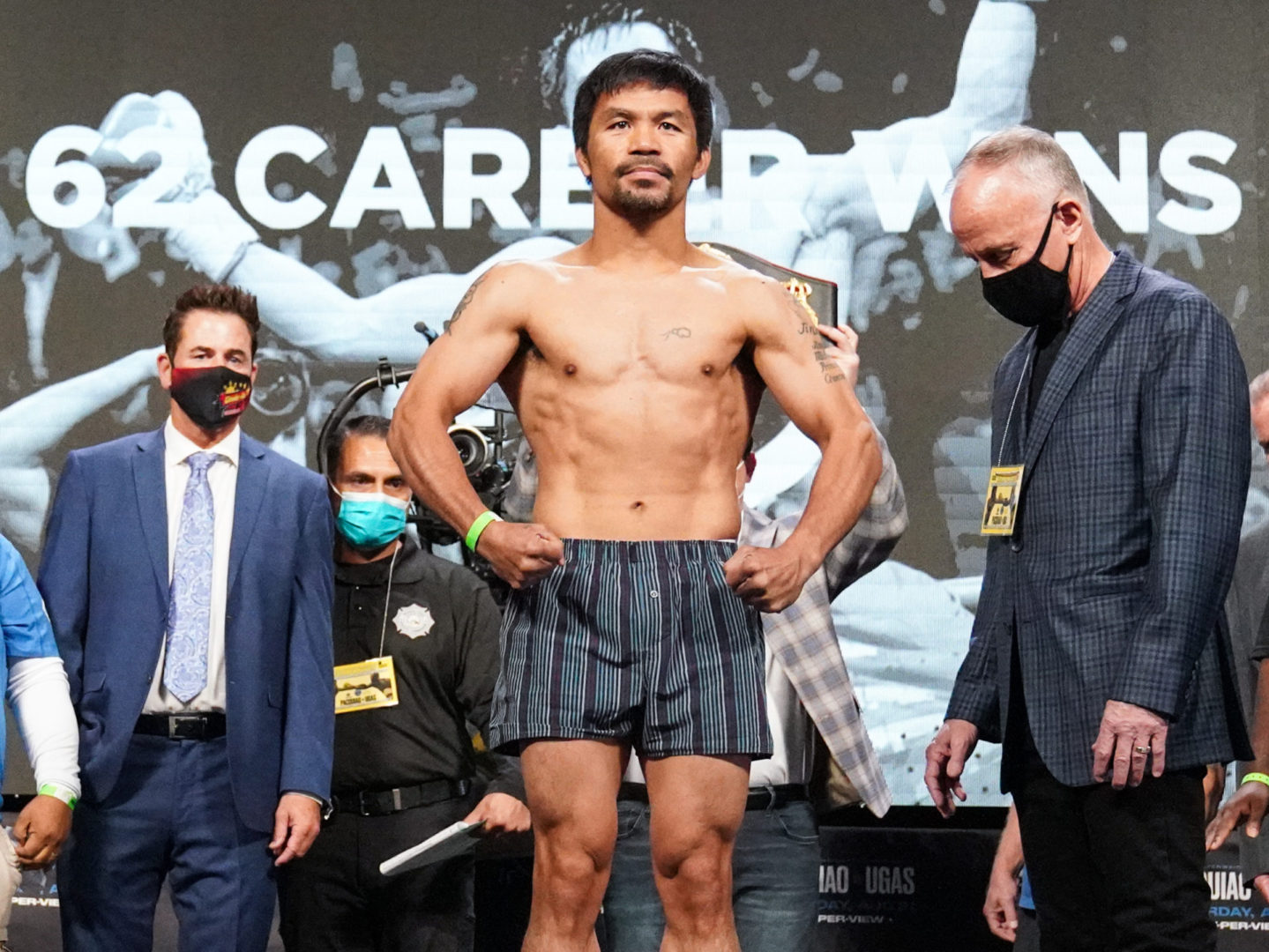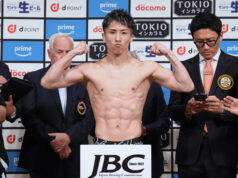By Jimmy Tobin-
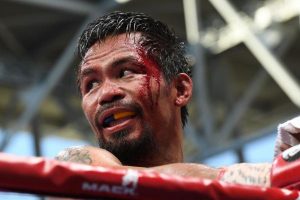
Welterweights Manny Pacquiao and Jeff Horn met at Suncorp Stadium in Brisbane, Australia, Saturday night in a fight broadcast by ESPN; a fight that delivered an outcome in keeping with the off-brand look of the production and cacophony of inane commentary typical of a network that for so long was in the glorified club fight business. Horn was awarded a unanimous decision over Pacquiao, the most absurd one yet hung on the aging Filipino, though not so heinous that that title too couldn’t one day change hands.
There was once a nostalgic quality to the aged Pacquiao’s performances; all those signature moves, however diminished in their effect, conjured memories of the excitement his arrival, his ascension to dominance, the mania his very presence at LAX or in the Wild Card parking lot, once produced. Nostalgia too for a period when fighters identified as such; when there were fewer reasons to consider boxing a business or show interest in the machinations that delivered or failed to deliver this fight or that; when there were spectacles of consequence and futurity and an endgame still discernible in the wayward paths.
Granted there is some historical bias at work here (this is what nostalgia does) and any sober examination of the years before Pacquiao’s decline would reveal a sport as charmingly flawed and frustrating as ever. Indeed, a number of boxing’s more modern malaises can be traced back to Pacquiao, in particular, the fight that more than any other made managers and promoters of us all, made contract negotiations an acceptable substitute for the fight itself, and proved actively lowering expectations brings scant penalty to those responsible.
But it was only because he remained a relatively close approximation of his former self that Pacquiao could have this mnemonic effect (compare, for example, what feelings are elicited by the sad spectacle of Roy Jones Jr., or how tedious Bernard Hopkins, former executioner, became in the later years of his career). Yet despite deserving the victory, Pacquiao produced little of that nostalgia against Horn. Yes, his ring walk was rich in its usual levity, and Pacquiao flashed genuine relish at his opponent’s aggression, but his legs, and with them his accuracy and timing, have left him. So too, it looked, has some of his fighting joy, perhaps a casualty of where his career has been navigated in recent years. In an open air stadium in Australia, under the ruthless afternoon sun, against an opponent whose every forearm, headlock, and half-nelson was cheered—and this mess televised for free on ESPN? Even someone as sanguine as Pacquiao must have wondered how he ended up in such a state.
And then the scores were read.
In writing about bogus decisions like the one delivered at Suncorp Stadium, courtesy dictates one bestow a charitable judgment on the efforts of the victor; the goal being to separate the fighter from the scorecards he did not produce. One need only remember how Timothy Bradley fared in the aftermath of his reviled decision over Pacquiao to see the importance of not holding the fighter responsible for the judges’ appraisal.
Very well.
Did the punch stat numbers, overwhelmingly favoring Pacquiao, misrepresent the competitiveness of the fight? A bit. Human error corrupts their tally and they capture neither force nor effect; such stats are often only as credible as they are convenient. Is Joe Tessitore a fool for struggling to understand how a fighter nearly stopped could nevertheless win a decision? Yes (or maybe he’s just a loyal employee). Could the opinions of slowly emptying balloons Teddy Atlas and Stephen A. Smith promote controversy where there might not be any? Certainly. (Though if there is anything Atlas’ deafening lunacy engenders it is an urge to disagree. He makes for hypercritical if not antagonistic listeners, a fact that hurts more than helps the fighter he is endorsing. Smith probably does the same).
In the ring, Horn comported himself admirably in the biggest fight of his career (no meager compliment, that). The Pacquiao of even last year probably beats Horn conclusively, but on Saturday this smoldering version of the Filipino looked as far removed from his incendiary peak as he ever has, and Horn should claim some credit for that. Let him have it, then. And let him confirm his supposed potency against another top opponent—the decision, however dubious, must be reckoned with, and Horn, however undeserving, is for now belted and consequential.
Pacquiao-Horn played out similarly to Roman Gonzalez’ fight with Srisaket Sor Rungvisai earlier this year. The smaller fighter faced adversity early, fought through cuts from headbutts to wrest control of the action, nearly scored a stoppage in the later rounds, and lost not so much to his opponent as to the optics of blood and the larger man’s incessant aggression, to the rationale that an unheralded opponent should be rewarded for outperforming expectations.
Such factors should not victors of Rungvisai or Horn make, but incompetence in a sport like boxing is impossible to insulate against. Still, since neither Gonzalez nor Pacquiao was interested in grabbing a pitchfork and lighting a torch neither should we. Not when laughing is so much easier.


